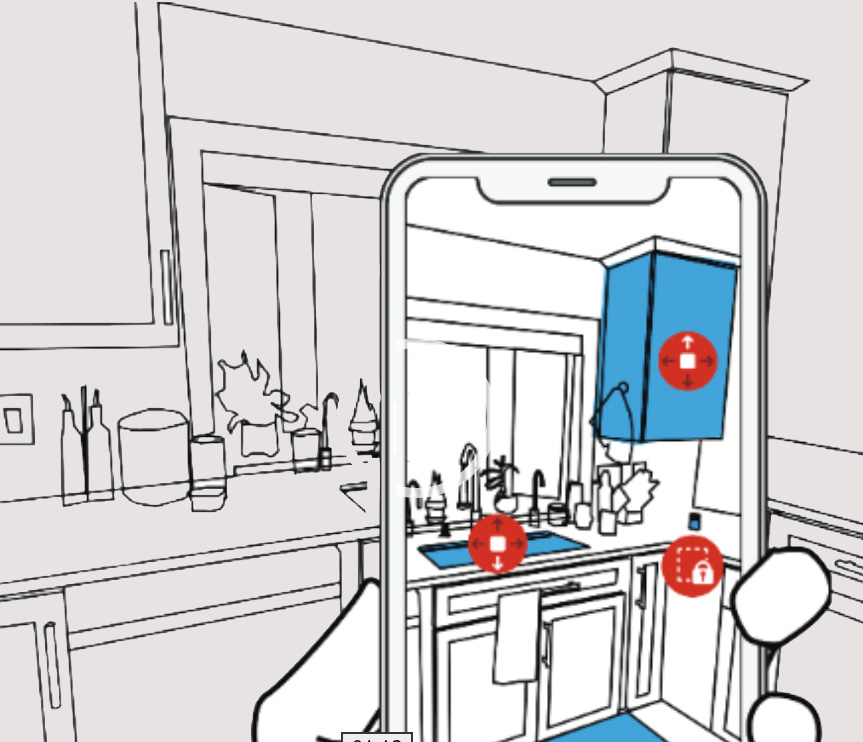October 25, 2023
RASSAR – Room Accessibility and Safety Scan in Augmented Reality – is a novel smartphone-based prototype for semi-automatically identifying, categorizing, and localizing indoor accessibility and safety issues. With RASSAR, the user holds out their phone and scans a space. The tool uses LiDAR and camera data, real-time machine learning, and AR to construct a real-time model of the 3D scene, attempts to identify and classify known accessibility and safety issues, and visualizes potential problems overlaid in AR.
RASSAR researchers envision the tool as an aid in the building and validation of new construction, planning renovations, or updating homes for health concerns, or for telehealth home visits with occupational therapists. UW News interviewed two CREATE Ph.D. students about their work on the project:
Augmented Reality to Support Accessibility
CREATE students Xia Su and Jae Lee, advised by CREATE Associate Director Jon Froehlich in the Makeability Lab, discuss their work using augmented reality to support accessibility. The Allen School Ph.D. students are presenting their work at ASSETS and UIST this year.
- Read the UW News article
